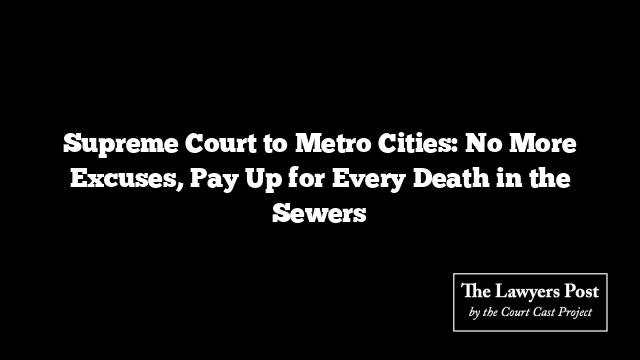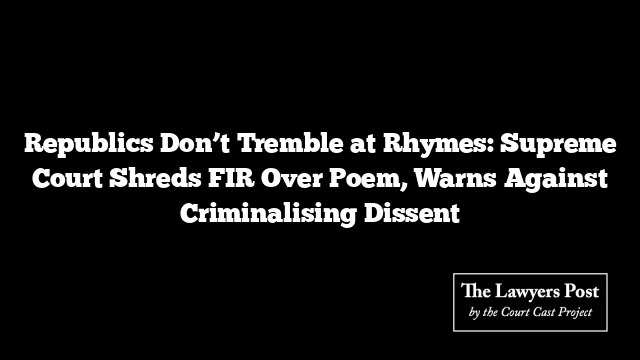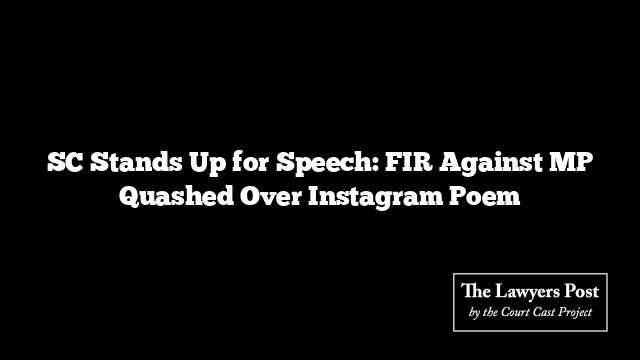In a sweeping rebuke to four of India’s biggest cities, the Supreme Court has demanded answers, action—and compensation. With a blunt warning that the era of legal tap-dancing is over, the Court on Thursday ordered civic authorities in Delhi, Bengaluru, Hyderabad, and Kolkata to cough up ₹30 lakh each within four weeks for every life lost to manual sewer cleaning in the past three months.
The bench, comprising Justices Sudhanshu Dhulia and Aravind Kumar, wasn’t buying the glossy affidavits sent in by city officials, calling them “cleverly worded” attempts to dodge the grim reality: people are still dying inside sewers, despite the official narrative that manual scavenging is extinct.
“This must stop,” the Court said, hinting at looming contempt proceedings and FIRs if compliance isn’t immediate and complete. The message: no more fiction, no more bureaucracy—only facts, accountability, and action.
Delhi: Dodging Jurisdiction, Inviting Fire
The Delhi Jal Board tried to deflect responsibility, claiming the deaths occurred outside its turf. But under pressure, its own director, Pankaj Kumar Atray, conceded the area fell under DJB’s purview. His attempt to shift blame to a “private unauthorized entry” into the sewer only drew sharper scrutiny from the bench.
Justice Dhulia didn’t mince words: “Without your authorisation, you may not be responsible—but someone is. Don’t create a bigger problem.” The Court made it clear: DJB’s affidavit had skipped the most crucial detail—how these deaths occurred if manual scavenging was truly banned. A detailed new affidavit is now mandatory.
Bengaluru: Selective Memory, False Comfort
BBMP claimed it hadn’t touched manual scavenging since 2013 and boasted zero deaths since 2017. But reality had other plans. The Court was handed hard data from the National Safai Karamchari Commission showing multiple fatalities—four in 2024 alone.
“From 2017 onward, over 20 deaths. And yet your affidavit says nothing,” Justice Dhulia scolded. The numbers didn’t lie—and the affidavit, in the Court’s view, was an intentional misrepresentation. A stark warning followed: file a better affidavit or face FIRs.
Hyderabad: Ancient Pipes, Modern Tragedies
Hyderabad’s officials reached far into history, suggesting that deaths occurred during attempts to modernize “Nizam-era” pipelines—not due to manual scavenging. But the Court found that three men died inhaling toxic fumes while cleaning sewers.
Justice Dhulia wasn’t impressed with the historical justification: “Does Nizam come in here?” The affidavit, he said, was another illusion. Yet Hyderabad earned a rare nod for owning more modern cleaning equipment than even Delhi—a silver lining amid the outrage.
Kolkata: Partial Payments, Unfinished Business
Kolkata tried to argue that the ₹10 lakh already paid by a contractor should suffice. But the Supreme Court wasn’t budging from the statutory mandate: ₹30 lakh per death. Three people have died as of February 2, and the Court now expects full statutory compensation without delay. A fresh directive has gone out to West Bengal’s Chief Secretary for clarification on jurisdiction and implementation.
The Broader Picture
While cities try to spin narratives, the Court is digging for truth. It no longer wants polished affidavits; it wants names, dates, and machine logs. Every death, every cover-up, every sidestep is now under a microscope.
“We’re not just talking about policy failures,” Justice Dhulia declared. “We’re talking about killing somebody.”
The message from the bench is now unmistakable: stop hiding behind legalese. Start honoring lives.





